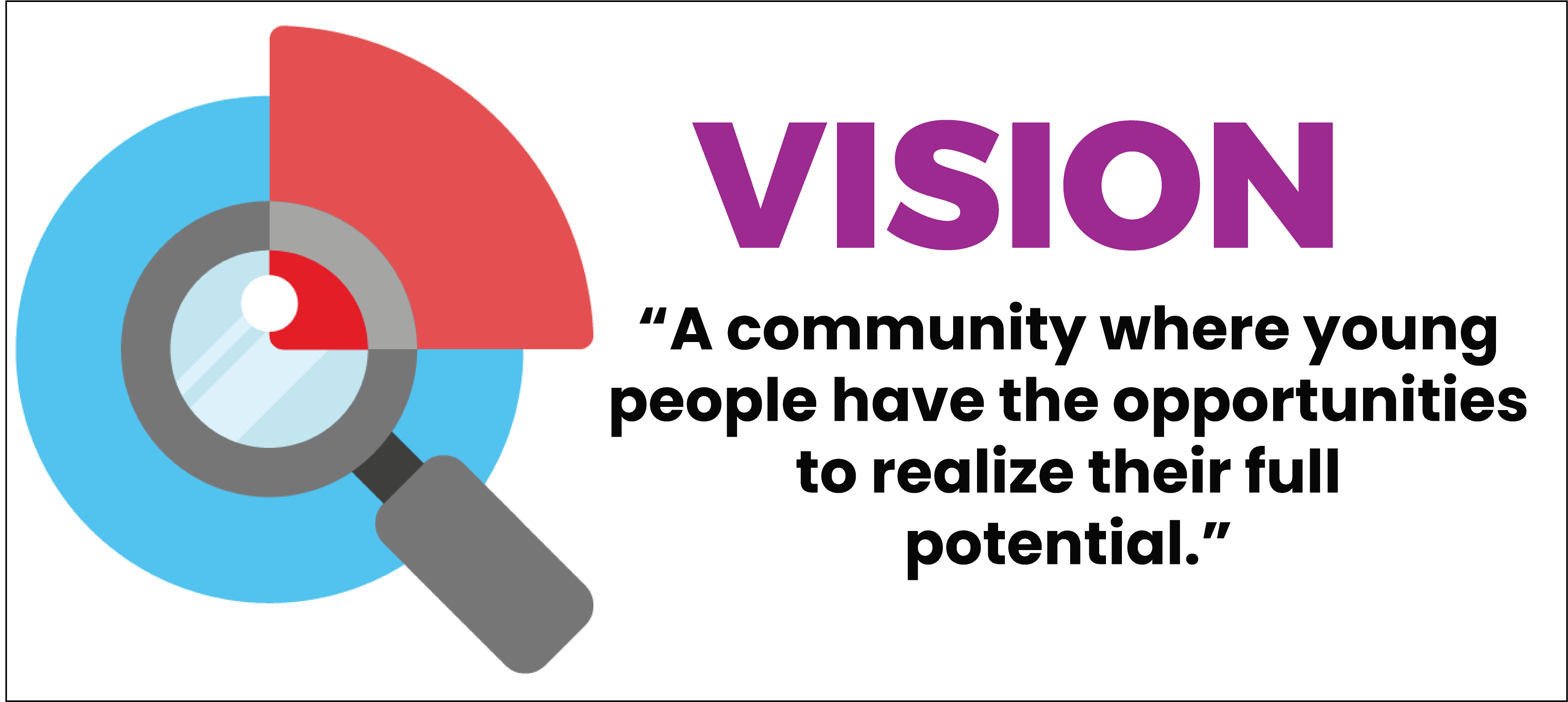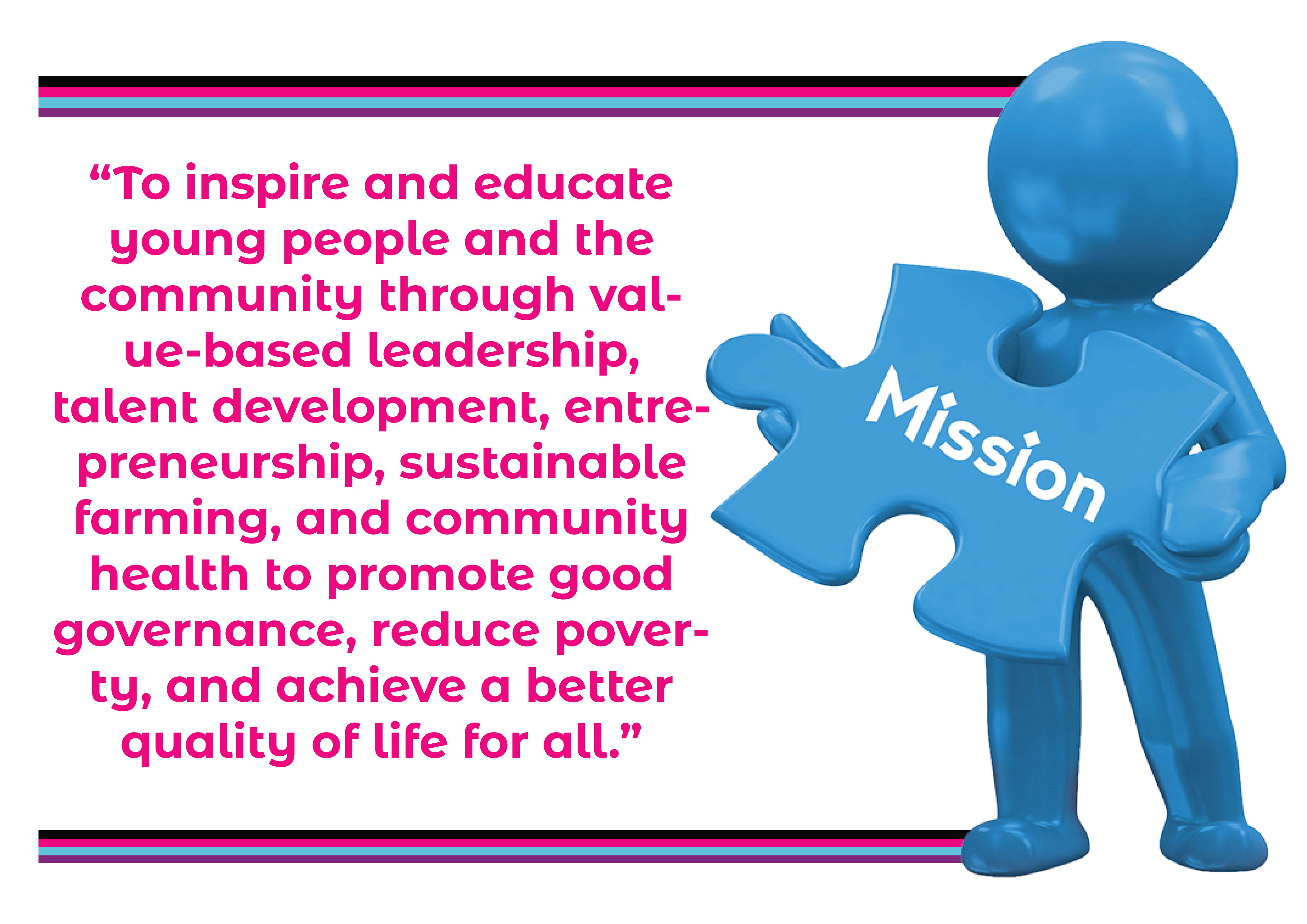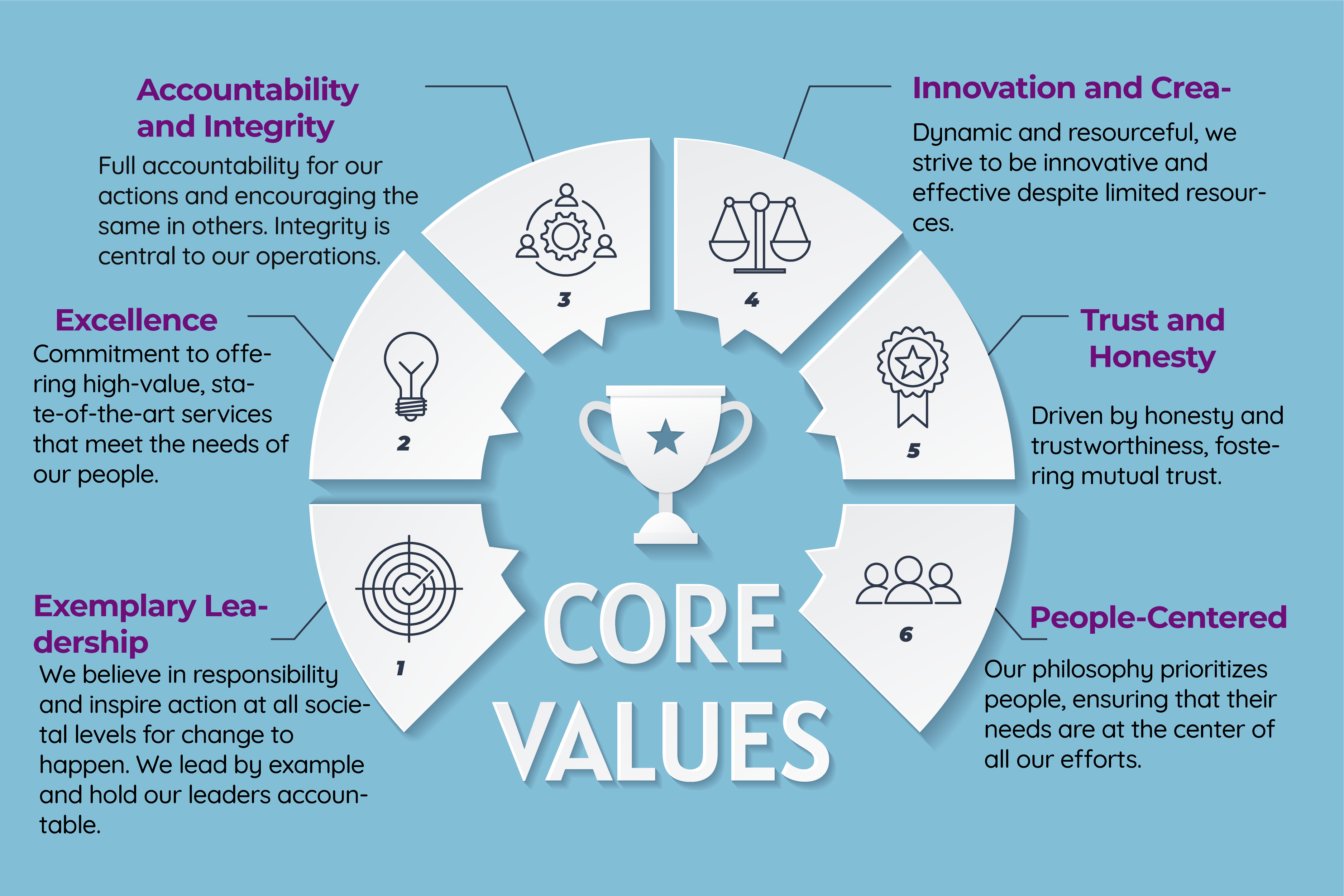

Global Forum For Development (GLOFORD) Uganda is a registered company limited by guarantee with the Uganda Registration Services Bureau (URSB) and an indigenous NGO and operates as a non-discriminatory Christian organization. Our mission is to champion and lead community organizing and transformational development through mentorship, collaborations and partnerships, advocacy, entrepreneurship, skills exchange, and learning. We utilize a Human Rights Based Approach, Value-Based Leadership Development models, and other strategies for community and nation-building. Founded in Lira in 2008, GLOFORD was first registered as a Community Based Organization (CBO) with Lira District Local Government on April 7, 2010. In 2015, we transitioned to a national NGO with Registration Number S.5914/10939 and have been operating as such since. Additionally, GLOFORD is incorporated with URSB under registration number 80020002204162. Following the NGO law of March 2016, we were re-registered with the Uganda NGO Bureau with the number INDR109395079NB.
Our Christian identity is deeply embedded in our operations and mission, inspired by Biblical teachings and instructions. As a faith-based organization, we are guided by the principles of love, compassion, and service to others, as taught by Jesus Christ. We emphasize the importance of loving God and our neighbors (Matthew 22:37-39) and strive to act justly, love mercy, and walk humbly with God (Micah 6:8).
Currently, GLOFORD is actively engaged with local governments and communities, focusing on transformational development with young people, leaders, and communities across the Lango sub-region, particularly in Lira City, Lira, Kole, Oyam, Dokolo, and Alebtong districts, as well as in the Acholi region in Pader district. Our core work involves partnering with communities to shape their destiny by investing in young people, community development and strengthening governance systems. We build the capacities of individuals and institutions, enabling people to take active and collaborative roles in defining their future.
GLOFORD’s niche lies in driving youth empowerment, community and individual transformation through value-based mentorship, agribusiness development, target group training, system strengthening, advocacy, and leadership for young people and communities. Our programs are delivered through proven models such as the Youth Parliament for youth governance and leadership development, Youth Economic Empowerment and Poverty Reduction using the IDIL (Identify together, Design and co-create, Implement, Learn, Adjust and Upscale) model, and the Rescue, Rehabilitate, Empower and Deploy (RRED) model for urban youth empowerment. We also make significant strides in championing climate justice and promoting environmental conservation.
Christian Foundational Creed
GLOFORD is anchored on a Christian foundational creed inspired by Biblical teachings and instructions. Our operations are driven by the teachings of Jesus Christ, who emphasized love, compassion, and service to others. As stated in Matthew 22:37-39, Jesus taught to “‘Love the Lord your God with all your heart and with all your soul and with all your mind.’ This is the first and greatest commandment. And the second is like it: ‘Love your neighbor as yourself.’” Additionally, Micah 6:8 guides us to “act justly and to love mercy and to walk humbly with your God.”
Programs and Initiatives
GLOFORD’s core activities focus on working with communities to shape their destinies by investing in young people and strengthening governance systems. Our programming models include:
Geographical Reach
Currently, GLOFORD is actively engaged with local governments and communities across the Lango sub-region, specifically in Lira City, Lira, Kole, Oyam, Dokolo, and Alebtong districts, and also in the Acholi region in Pader district. GLOFORD has also extended their WASH expertise in partnership with mWater to Zimbabwe and South Sudan.
Impact and Future Plans
At GLOFORD, we are dedicated to driving significant transformation by fostering community resilience, promoting climate justice, and ensuring environmental conservation. Our youth empowerment programs are designed to equip young people with the skills and opportunities they need to thrive and lead.
GLOFORD Uganda has developed a five-year Strategic Development Plan spanning 2023-2028, supported by the GIZ Civil Society in Uganda Support Programme, funded by the European Union and the German Government. This strategic plan aims to contribute to the realization of an empowered community of youth and young people who fully exploit their potentials and effectively influence the development agenda in Lango and the Northern region by 2028.
Through this strategic plan, GLOFORD aims to reach 400,000 people (with a gender distribution of 40% male and 60% female), of which 70% will be young people, investing an estimated financial resource worth UGX 9.6 billion. The Strategic Plan will be delivered through six Core Strategic Program Areas (CoSPA):
GLOFORD Uganda’s five-year Strategic Development Plan (2023-2028) is structured around six Core Strategic Program Areas. These areas are designed to drive our mission and vision forward, creating a profound impact on the communities we serve.
This program area focuses on nurturing the potential of young people by developing their leadership skills and abilities. We believe that young people are the backbone of sustainable development and are essential to creating vibrant, progressive communities. Through the Youth Parliament, we provide platforms for young people to engage in governance and leadership roles, encouraging them to be proactive in decision-making processes. Mentorship programs, leadership workshops, and capacity-building sessions are key components of this initiative, equipping youth with the skills necessary to influence positive change within their communities.
Ensuring the safety, well-being, and holistic development of children is at the heart of this program area. We implement child-focused interventions that promote educational opportunities, health care, and protection from abuse and exploitation. By collaborating with local schools, healthcare providers, and child protection agencies, we strive to create a supportive environment where every child can thrive. Programs under this area include early childhood development initiatives, school support programs, and community sensitization campaigns on child rights and protection among others.
Strengthening governance systems and promoting civic engagement are crucial for sustainable development. This program area focuses on enhancing transparency, accountability, and participation in local governance. We work with community leaders, local governments, and civil society organizations to foster an inclusive governance structure that represents and responds to the needs of the community. Activities include training sessions on good governance practices, civic education programs, and platforms for community dialogue and participation. We aim to empower citizens to hold their leaders accountable and actively participate in the governance processes.
Improving community health through better water, sanitation, hygiene (WASH), and mental health services is a priority for GLOFORD. Access to clean water and proper sanitation is fundamental to preventing disease and promoting health. Our initiatives focus on building and maintaining water and sanitation infrastructure, promoting hygiene education, and ensuring access to mental health services. We partner with health professionals and organizations to deliver community health programs, mental health awareness campaigns, and training for local health workers. Our goal is to create healthier communities where individuals can lead productive lives.
Promoting sexual and reproductive health and rights (SRHR) is essential for empowering individuals, particularly young people and women, to make informed decisions about their bodies and futures. This program area focuses on providing comprehensive SRHR education, services, and advocacy. We work to increase awareness and accessibility of contraceptive methods, maternal health care, and prevention of sexually transmitted infections (STIs). Our initiatives include community outreach programs, school-based education sessions, and partnerships with healthcare providers to deliver SRHR services. By addressing these critical issues, we aim to reduce health disparities and improve overall well-being.
Alleviating poverty through capacity building and organizational development is a key focus for GLOFORD. We implement programs that enhance the economic stability of individuals and communities by promoting entrepreneurship, vocational training, and sustainable farming practices. Our IDIL (Identify together, Design and co-create, Implement, Learn, Adjust and Upscale) model fosters collaborative development and continuous improvement. Additionally, we work on strengthening local institutions and organizations to enhance their effectiveness and sustainability. By building strong, resilient institutions, we aim to create an enabling environment for economic growth and development.
GLOFORD Uganda’s strategic plan is designed to be comprehensive and inclusive, addressing the multifaceted challenges faced by the communities we serve. By focusing on these core strategic program areas, we aim to drive significant, sustainable change and contribute to the overall development and well-being of the Lango and Northern region. Through collaboration, innovation, and a steadfast commitment to our mission, we strive to create a future where every individual has the opportunity to realize their full potential.
GLOFORD will drive this strategy through its six program pillars:
Pillar 1. Influence Change: Empower communities to take charge of their development.
Pillar 2. Improved Facilities: Enhance infrastructure and services for better living standards.
Pillar 3. Good Governance System: Strengthen governance structures and practices.
Pillar 4. Build Collaboration and Partnerships for Sustainable Development: Foster strong alliances for impactful interventions.
Pillar 5. Invest in Human Capital for Sustainable Development: Develop skills and capacities of individuals and communities.
Pillar 6. Learning for Improvement for Sustainable Development: Promote continuous learning and adaptation for sustained impact.



GLOFORD’s mandate involves grooming the next generation of leaders with a global perspective. We empower youth and communities to combat poverty, ignorance, and disease in a sustainable manner. Our approach includes non-confrontational advocacy to build lasting peace, promote human rights, democracy, good governance, and the rule of law.
